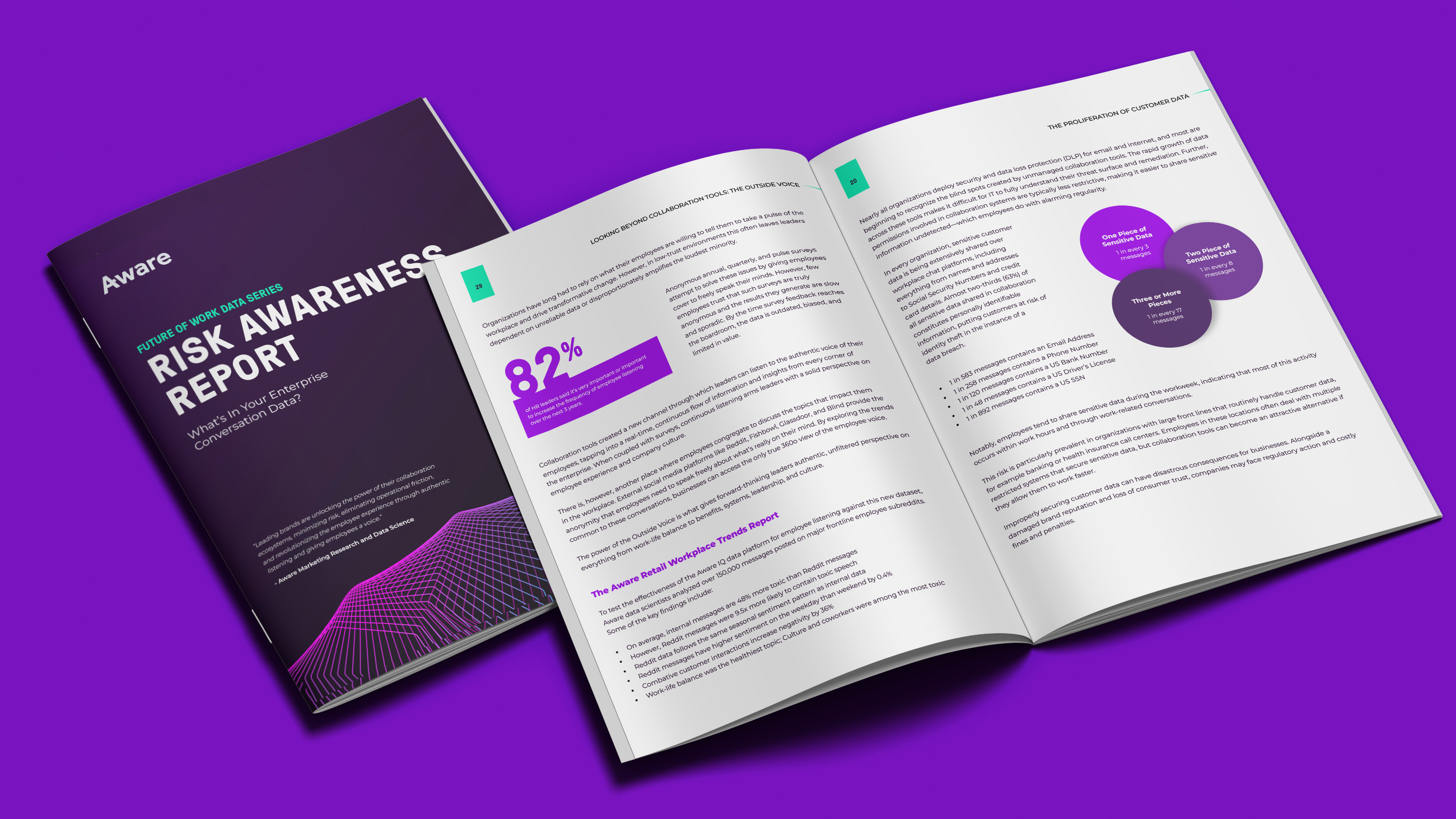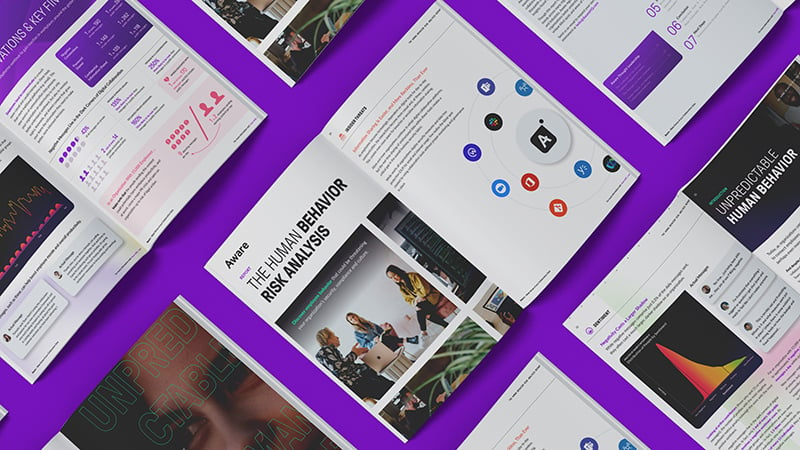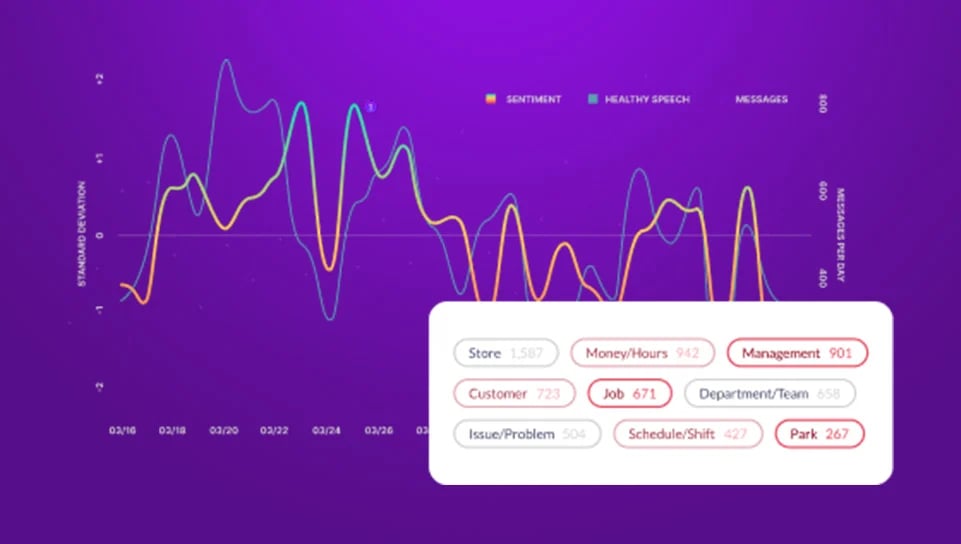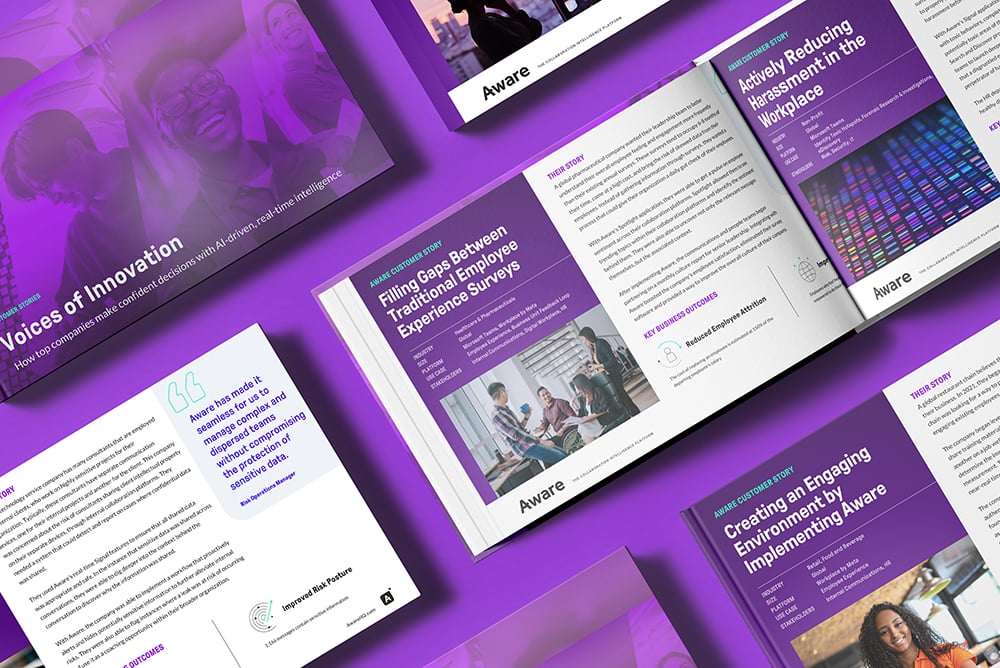AWARE FOR SOCIAL ENGINEERING
Defend against targeted social engineering attacks
Real-time, AI-powered monitoring from Aware flags more risks with contextual intelligence insights.
ABOUT targeted social engineering
What is a targeted social engineering attack?
A targeted social engineering attack, also known as spear phishing, is a type of cyberattack where the attacker carefully researches and crafts a highly personalized attack aimed at specific individuals or organizations. Targeted social engineering attacks pose a significant risk due to their highly deceptive nature and potential for severe consequences, such as data breaches, financial fraud, or malware infections within the targeted organization.
Defending against impersonation attacks, highjacked integrations, malicious apps, and leaked credentials can present new challenges in collaboration tools like Slack and Microsoft Teams because of the complex way information is transmitted through different channel and message types. These features can provide cover for threat actors to target multiple employees simultaneously, increasing the risk that organizations face in defending against such attacks.
IMPORTANCE OF SOCIAL ENGINEERING DEFENSE
Social engineering protection for collaboration
Collaboration tools are a fast-growing attack surface area where hackers and other threat actors can compromise security, exfiltrate data, and steal company property.
Keep operations flowing smoothly
Social engineering attacks often result in system outages, increased downtime, and authorized employees locked out of critical tools. Preventing them keeps your business ops on track.
Safeguard data and resources
Reduce the risk of IP and sensitive or confidential data being exfiltrated during social engineering attacks by proactively mitigating risk.
Protect your company reputation
Proactive threat detection can help the company build trust and avoid high-profile hacks that damage customer, partner, and investor confidence.
Reduce financial loss and liability
Phishing attacks cost enterprises upward of $15 million annual in ransoms, fines, and remediation costs to clean up malware.
Strengthen compliance posture
Mitigating the risk of social engineering attacks provides an added layer of protection for regulated information such as PII/PHI/PCI.
Support your company culture
Bad actors impersonating employees to trick their colleagues into putting the business in jeopardy can send shockwaves through your company culture.
Aware capabilities
Detect bad actors in collaboration platforms
Defend against major social engineering attack methods in real time.
Mitigate risks as they occur
Aware continuously ingests and analyzes messages from tools like Slack and Teams, surfacing insider risk incidents as they occur.
Increase results accuracy with AI
Leverage industry-leading NLP and AI/ML workflows to detect even more incidents while reducing false positives and alert fatigue.
Take action immediately to contain risk
Automate blocking messages, alerting stakeholders, and coaching employees with customizable policies integrated into your existing workflows.
Understand the context in investigations
Support security, legal, and compliance investigations with the full context surrounding a security event or breach.
Use models that understand your business
Aware's NLP AI adapts to what "normal" looks like in your organization, accelerating the speed of anomaly detection and reducing false alerts.
.png?width=775&height=627&name=Content-img%20(1).png)
Learn more

Aware Risk Awareness Report
How much risk do you face in collaboration data sets, really? Aware data scientists analyzed 6.6 billion real collaboration messages to find out.

Human Risks of the Digital Workplace
Malicious behavior, external bad actors, negligent insiders, phishing lures and more can all create chaos in collaboration tools.

How Hackers Target Employees in Slack
Discover how these major companies' Slack accounts were hacked by targeted social engineering and other common attack vectors.








